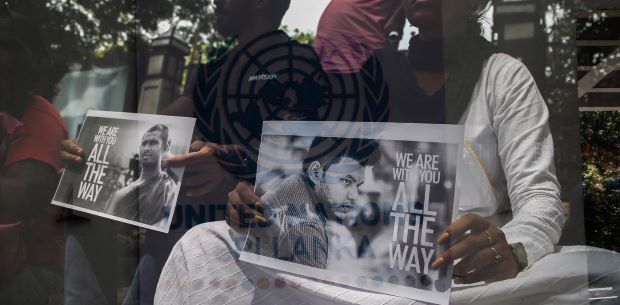Sri Lanka contemplates law to limit grace period offered to state university students
COLOMBO — Sri Lanka plans to introduce legislation limiting the grace period offered to undergraduate students at state universities to complete their degree to no more than one and a half years, an official said as student unions cried foul.
State Minister of Higher Education Suren Raghavan told reporters on Monday (28) that discussions will be held with university students and student leaders in this regard, even as the Inter University Student Federation (IUSF) expressed vehement opposition to the move.
“Some students who were selected to the degree program, are doing anything but the degree,” the state minister said.
If the proposal becomes law, students following three-year and four-year undergraduate programs at state universities will be able to take only up to four-and-a-half and six-and-a-half years respectively to finish their studies.
Raghavan said the grace period is generally offered to students who need more time to complete their degree due to health reasons, problems at home or social issues in the country at large.
“We will discuss this with students and student leaders. I think the time given is sufficient,” he said.
IUSF Acting Convenor Terance Rodrigo was quoted by a daily English-language newspaper as saying that the student body is holding internal discussions on their position on the government decision but it is already of the view that the move is an attempt to stifle the political activism of student unions.
The IUSF played a leading role in Sri Lanka’s youth-led Aragalaya protests that ousted President Gotabaya Rajapaksa over his and his government’s handling of the worst currency crisis in decades.
IUSF convenor Wasantha Mudalige is currently in detention after being arrested under provisions in the controversial Prevention of Terrorism Act (PTA). Mudalige has been an undergraduate student for nearly a decade, with his politics and student activism purportedly getting in the way of his education.
Incumbent President Ranil Wickremesinghe, who has been criticized by human rights defenders and opposition lawmakers for an alleged crackdown on the Aragalaya protests, insinuated in a speech in Parliament last week that Mudalige is no university student as he has still hasn’t finished his studies.
Wickremesinghe is not alone in this sentiment, however. Critics of the IUSF and even some sympathizers have spoken critically of what they call Mudalige’s “state-funded overstay”. Others, however, have defended him and other student leaders as those doing important and necessary work by fighting in the trenches to protect and uphold the people’s rights.
-economynext.com



Comments are closed, but trackbacks and pingbacks are open.